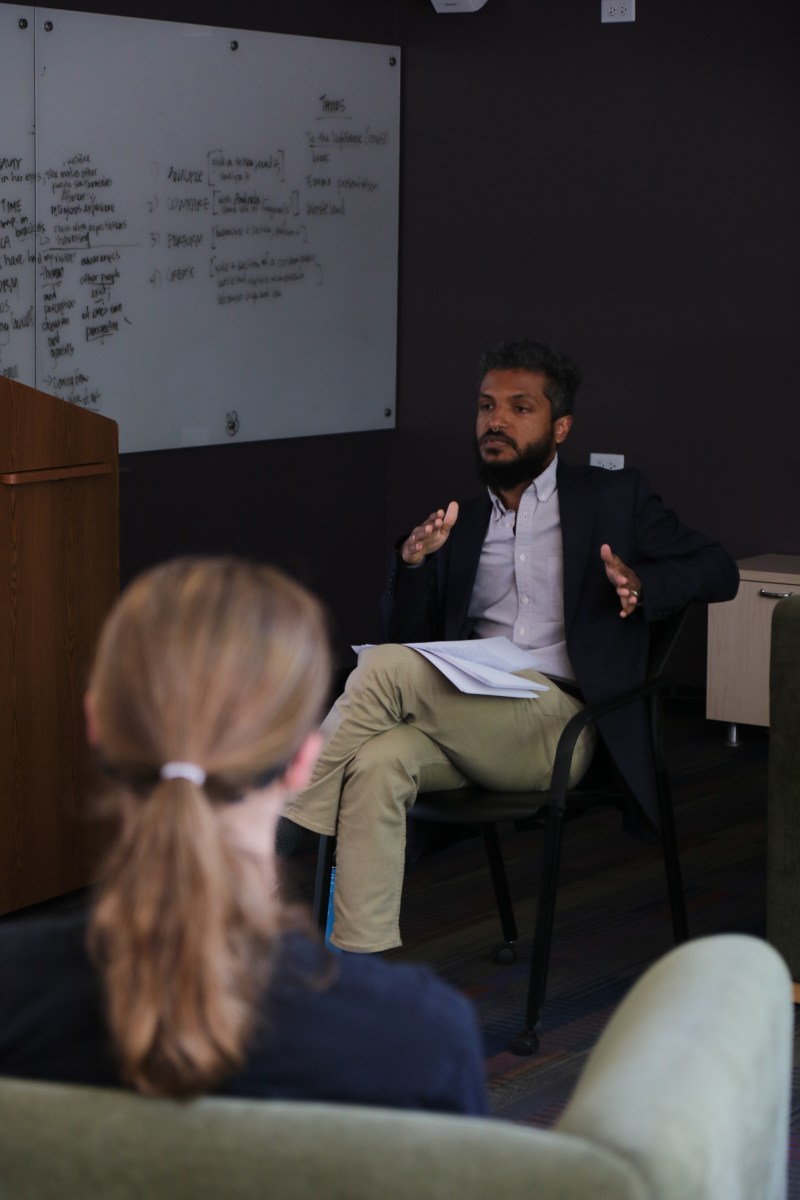Elias Rodriques ’13, an assistant professor of literature at Sarah Lawrence College, returned to his frosh dorm, SLE, to discuss Black Marxism’s history and his journey with the theory on Friday.
Black Marxism is a theory based on traditional Marxism, shifted to reflect a Black lens. The theory rose to popularity in the late 1980s when Black scholars and thinkers noticed that Marxism was “appearing to be especially white,” Rodriques explained. According to Rodriques, there are the three core tenets Black Marxism “yields insight on: the role of the economy and state violence; the relationship between local repression and global systems; [and] the racial distribution of places.”
Rodriques found his way to Marxism after getting involved with The Philadelphia Community Bail Fund, a Black woman-led organization that aims to raise bail for people who can’t afford it on their own.
“We provided a variety of supportive services, because as a number of our formerly incarcerated members put it, in jail it is really just one problem; when a person gets out, the problems that they had before [jail] remain or are exacerbated as a result of incarceration,” Rodriques explained.
During the racial justice protests of 2020, Rodriques began to realize the role Black Marxism’s tenets could play in interpreting modern day events. “If working the bail fund made concrete the role of the economy in persecuting the incarcerated, the 2020 Rebellion in Philadelphia connected what we saw on the ground to the global events,” he explained.

While these experiences led Rodriques to Black Marxism, ultimately much of his inspiration for Black Marxist theory comes from Cedric Robinson’s book “Black Marxism.”
Robinson published his book in the 1980s following the Cold War, when Marxist theory was a popular area of academic interest. However, the discussion lacked the perspective and experiences of Black thinkers. To remedy this, “Robinson sought to both recover Marxist history and to offer a critique of the best version of Marxism that he could articulate,” Rodriques said.
In this way, Black Marxism goes beyond original Marxism, because “the Black radical tradition is offering a more expansive critique of contemporaneous systems of degradation, and a more complete vision of liberation,” according to Rodriques.
Black Marxism can partially be traced back to Black nationalist Marcus Garvey’s ideas about Pan-Africanism. While prominent communists at the time, like Lenin, were advocating for colonies’ right to “self determine, that is, become nations,” Garvey adopted this theory to advocate for Black nationalism and Black Americans’ right to political self-determination, Rodriques explained.
The impact of Black Marxism in the U.S. also manifested in various attempts by Black activists, including Audrey Moore, to “submit a request to the United Nations, on the one hand, alleging that the United States government had attempted to commit genocide against Black people, and on the other hand, suggesting that, as a result, Black people deserve a nation within the country,” Rodriques said.
Rodriques said that he had two core takeaways from Robinson’s work. First, ground organizing gives way to intellectual interventions; according to Rodriques, Black thinkers were often inspired by their own activism work. Second, “Robinson’s vision of Black Marxism thought is collective, no matter which individual author’s name may be on the text,” he said.
